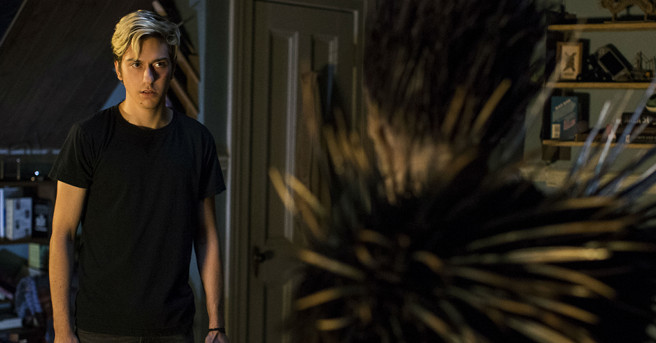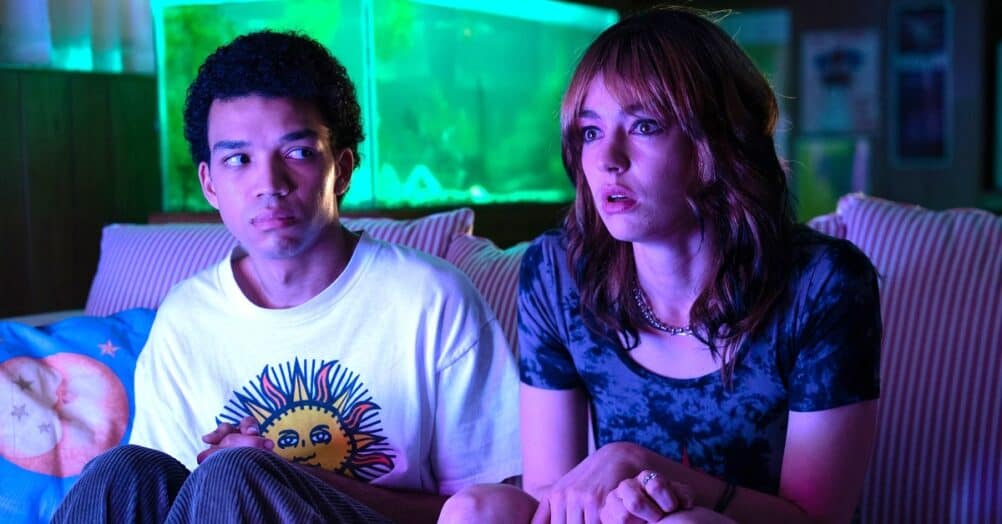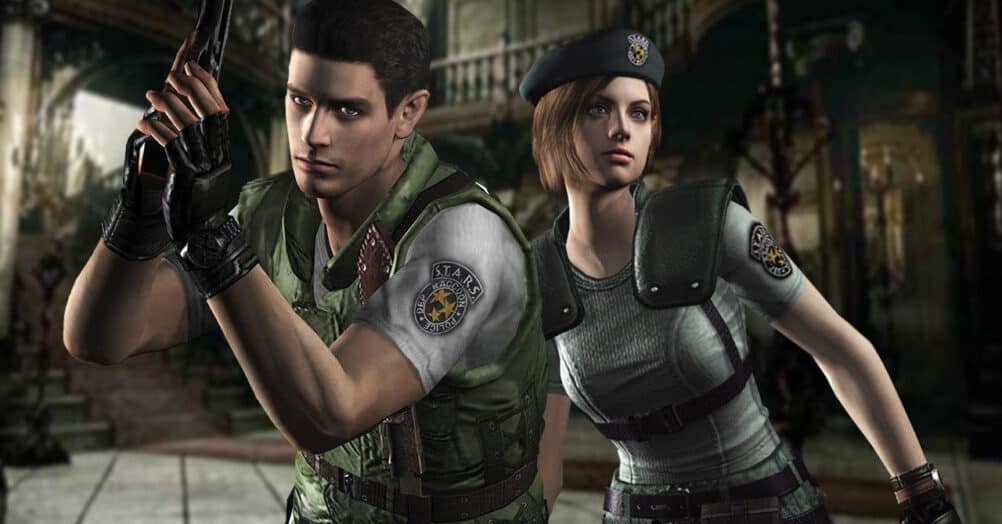Last Updated on July 30, 2021

PLOT: A high-schooler named Light finds a mysterious book called Death Note that allows him to kill whoever’s name is entered into its pages. Goaded on by a demon only he can see, Light is determined to rid the world of people who don’t deserve to live, but his reign of justice may end prematurely thanks to a brilliant investigator.
REVIEW: Maybe DEATH NOTE is one of those ideas that works better in a different medium; as a manga or anime, for example. Maybe it’s that it is impossible to take a work that has spanned countless volumes and iterations and expect it to work in a 100-minute feature aimed toward the uninitiated. Maybe they just didn’t get it right.
Whatever the excuse, there is definitely something lost in translation in bringing DEATH NOTE to life as an English language film for the first time. It’s not a terrible film by any means, but it’s frequently an awkward one. It is clearly ambitious, with enough spirit from the cast and crew to make it look as if there’s something meaningful brewing underneath the surface gloss, but it keeps tripping over its own feet thanks to a storyline that appears to keep changing the rules as it goes along. Furthermore, it glosses over the most interesting part of its premise – would you play God if you could? – in favor of a fairly ho-hum cat-and-mouse thriller angle. The material is challenging, there’s no doubt about that, and it would have been a herculean task for anyone to make it sensible and effective in the span of a single movie. This attempt at DEATH NOTE comes up short at being a coherent adaptation of a sprawling international cultural phenomenon, and it likely won’t serve as an enticing gateway for newbies.
Granted, I was unfamiliar with the source material for the most part; I’ve only known the basics, and the start of Wingard’s film appears to follow the same basic premise. The titular book falls one day at the feet of a young man named Light (Nat Wolff), a social outcast who regularly earns money by taking other people’s tests for them. With the book comes a “death god” called Ryuk (voiced by Willem Dafoe), a mischievous sort who urges Light to write down the names of people he’d like to see dead – and the method of their death – and it will magically happen. Light tries it out on a local bully named Kenny, scribbling “decapitation” next to his name, and low and behold Kenny is met with a FINAL DESTINATION-esque beheading in spectacular fashion. Light is instantly sold.
From there, Light is intent on ridding the world of its most evil occupants, which includes the man who ran over his mother. He brings his new friend Mia (Margaret Qualley) into the mix and she becomes hooked as well, and before long the movie has fast-forwarded some time and reveals the duo have killed over 400 people, leaving a calling card behind at every scene, Kira, which begins to scare the hell out of the criminal community at large. Light’s father (Shea Whigham) just so happens to be a detective on the case, although neither he nor anyone else is able to find out just how one person is able to wipe out so many people in such a fashion. Help is brought in in the form of L (Lakeith Stanfield), an eccentric genius who regularly assists the FBI on its most difficult cases. With the heat coming down on them, Light and Mia have to decide if they should continue their crusade against the wicked of the world. They also have to decide if they themselves are the ones who’ve become the bad guys.

It’s a lot of random material, and it plays out somewhat randomly too. The Death Note has a lot of rules within it, and the script brings them up whenever it’s convenient. I’m aware that the original versions of DEATH NOTE are similarly riddled with ever-changing rules, but in the context of this movie a lot seems arbitrary. But what really confused me here was that the act of playing god for Light and Mia is more or less relegated to the first act of the film, mostly summed up in a montage, when one would think it would be the most interesting aspect of the story. The moral gray area Light has to live in while serving out his cosmic justice feels like it should be the primary focus of the film, but DEATH NOTE would rather skip past most of that and deal with the investigation L is conducting as he gets ever closer to the infamous Kira. We’re also not privy to as many creative deaths as you might assume, the decapitation really being the only one of interest.
L is a quirky character (just as Stanfield is a quirky personality), with lots of strange tics and habits, but the movie definitely spends too much time with him when he’d best be served as a side character. (He dominates much of the movie’s second half.) His eccentricities may make up for the fact that he’s not a very unique character otherwise, and the whole of DEATH NOTE has a similar issue. Without its supernatural angle, the film has a fairly standard issue detective-vs-killer structure. My interest definitely waned the more the movie went on when it should have been perking up, and things start really getting askew when Light and Mia use the book not only to kill people, but to zombify them to carry out elaborate commands. I tend to throw my hands up during a movie that has so many rules and yet seemingly no rules at the same time.
There are several positive things to say about the film. The actors are solid, with Wolff, Qualley, Stanfield and Whigham ensuring their characters continue to grab our interest even if the narrative isn’t doing them any favors. (Qualley has a few really great moments in the third act.) The music, as can be counted upon with Adam Wingard at the helm, is a highlight, and the film excels on most other technical levels, with the creation of Ryuk a big standout. (Dafoe is just the right man to lend his very distinctive voice to the character; a match made in horror movie heaven.) And Wingard knows how to swerve a scene from dramatic to funny to freaky and back again; he’s done this plenty of time in the past with movies like YOU’RE NEXT and THE GUEST, and he proves adept at it here. He’s a good director of actors and understands how to modulate tension within a scene.
But DEATH NOTE left me a little cold in the end – and what an abrupt ending it is! – but I can’t say they didn’t try to make this peculiar thing work. It doesn’t make a whole lot of sense or flow very naturally, but it gets points for the effort.






















Follow the JOBLO MOVIE NETWORK
Follow us on YOUTUBE
Follow ARROW IN THE HEAD
Follow AITH on YOUTUBE